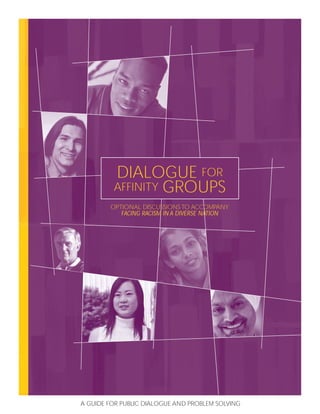The document outlines a guide for conducting dialogue sessions in affinity groups focused on addressing racism and promoting community change. It emphasizes the importance of shared discussions among people with similar racial or ethnic backgrounds to enhance understanding, build support, and prepare for broader mixed-group dialogues. The guide provides session outlines and discussion topics tailored to various ethnic groups, aiming to foster productive conversations that lead to actionable change in communities.



















